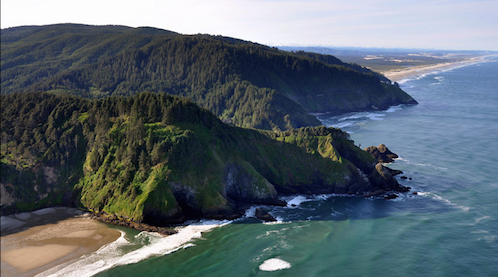
The Ocean Policy Advisory Council (OPAC) met this past Thursday in Tillamook, Oregon, devoting the majority of their 7-hour meeting to visioning new priorities for Oregon's ocean. As a broadly represented group of stakeholders, appointed by the Governor's office to inform and support ocean policy and planning in Oregon, OPAC did surprisingly well at honing in with strong commonality on the arising ocean issues impacting our coastal resources in need of statewide priority. Coastal and Ocean Resilience, Ocean Acidification and Marine Debris all rose to the top of the "new" priorities with informal working groups established for each while Territorial Sea Planning and Marine Reserves remain as "continuing priorities"for the Council.
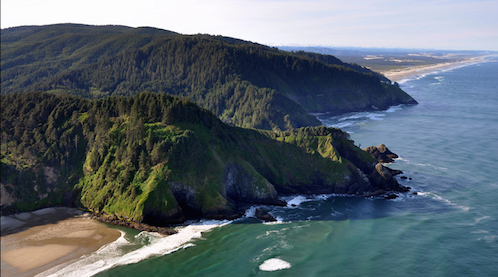
In a series of facilitated sessions throughout last week's meeting, the governor's office, managing agencies and ocean user group stakeholders represented on OPAC brainstormed and prioritized dozens of issues facing the Oregon coast. Often working on divisive issues, it was a refreshing scene at the OPAC meeting and as the ocean recreational stakeholder on the council, I was pleased that many of the issues concerning our members, volunteers and the recreational community rose to the top with more commonality from other stakeholders than divisiveness. Here's a quick wrap up of the continuing and new priorities for the council in the coming years and as always, feel free to reach out directly to me as your stakeholder on the council - email Charlie Plybon.
Continuing Priorities:
Territorial Sea Plan: Rocky Shores Chapter update
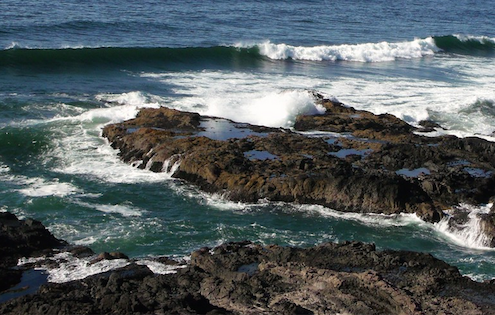 Otter Rock's Marine Gardens special management area
Otter Rock's Marine Gardens special management area
The Ocean Policy Advisory Council was originally formed for much of the development work of Oregon's Territorial Sea Plan (TSP). In the late 1980s and early 90s, Oregon was responding to federal gas and oil lease and exploration interests off the west coast and the recommendation from a previous ocean planning body (The Ocean Task Force) was to develop a "plan", following in Oregon's tradition of land-use planning, for the ocean that would support responsible management of Oregon's nearshore resources. To develop the plan, the Oregon State Legislature directed establishment of an Ocean Policy Advisory Council in 1991 and development of the first TSP occurred through 1994. As such, today a continuing priority is maintaining and updating this principle document for planning within Oregon's nearshore. From informing renewable energy development to management and designation of special areas such as marine gardens, the Territorial Sea Plan is a living and breathing document. As a continuing priority, OPAC established a workgroup to update Chapter 3: Rocky Shores, to address specific recommendations for managing each of 87 rocky shore areas along Oregon's shoreline. Look for this priority to play out for a couple of years.
Marine Reserves
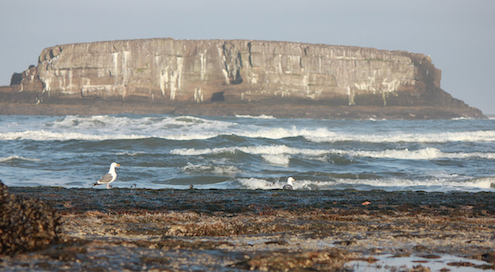 Gull rock at Otter Rock Marine Reserve
Gull rock at Otter Rock Marine Reserve
After wrestling with the establishment of Oregon's 5 Marine Reserve sites for nearly 10 years, it would be silly of OPAC to abandon such an area where Oregonians have sacrificed and vested much interest in protecting our nearshore waters and essential ecosystems for ocean resources. With the last of the reserves, Cape Falcon, to be fully implemented in January of 2016, the continuing science and research, ongoing evaluation and social interests of implementing these areas will remain a priority for OPAC at least through 2023, when the legislature is mandated to evaluate and review what we've learned from these special places. OPAC has dedicated standing presentations from the Oregon Department of Fish and Wildlife's Marine Reserves Program for ongoing discussion and updates at each meetings, focused on one marine reserve per meeting.
New Priorities:
Marine Debris
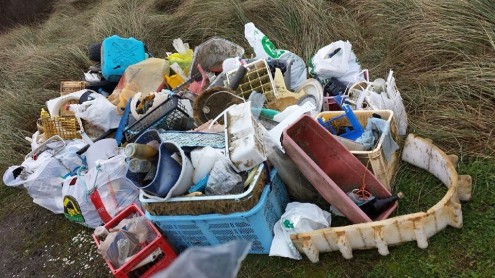
Seemingly after the wake of Japanese Tsunami Marine Debris and the now disbanded Governor's task force, both broad and local marine debris issues (likely more pressing than JTMD) have fallen off of statewide priority for planning. While many agencies and non-profits continue to wrestle with marine debris issues (a huge priority for our Surfrider chapters!), we don't exactly have the most coordinated of action plans for tackling our biggest marine debris problems within the state. Surfrider was thrilled to advocate for this new priority and even more excited by the majority interest of other OPAC members and stakeholders in better addressing our marine debris issues through better statewide coordination and actions. Surfrider will be a leader in this workgroup and we're currently scoping a process with NOAA to work alongside marine debris managing agencies, NGOs and other action-oriented stakeholders to develop Oregon's first marine debris action plan!
Ocean Acidification
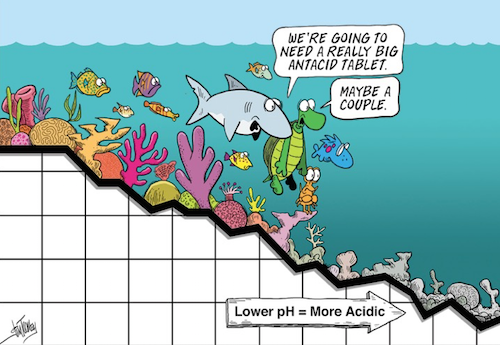
While oyster-farmers have been grappling with ocean acidification issues for years here in Oregon, the issue has remained often vague in the policy arena for advancing actions on the ground. But today, science and outreach to policy-makers and the general public offers an occasion to gain more ground in actual policy recommendations and opportunities for adaptability in management in response to our changing ocean chemistry. OPAC designated another informal working group, led by the Governor's office and Oregon Sea Grant, to begin outlining Oregon's opportunities to both advance science, adaptability, and resource management in the wake of this changing ocean chemistry. For Surfrider, we see this as an excellent opportunity to advance science and policy recommendations around many of the nearshore pollution issues we face as ocean users. It's notable that ocean acidification hotspots are driven more by non-point source pollution than they are by atmospheric CO2! Need a primer on this and the issue of Ocean Acidification in Oregon, visit: oregon.surfrider.org/oa
Coastal Resilience
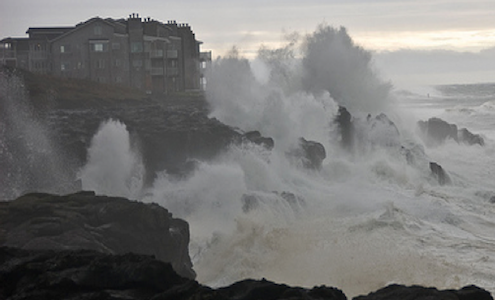
With all of the scientific unknowns in ocean chemistry, catastrophic events like the big quake/tsunami and the general vulnerability of coastal communities that depend on ocean resources and are exposed to high hazards, coastal and ocean resilience (and associated planning) is becoming more and more of a hot-button topic. Resilience can mean a lot of different things to different coastal and ocean stakeholders and presumably it's all based on durability of resources, culture/social and economy over changing risks and threats - change can be based on use, based on climate, based on regulation or management, change can also mean a lot of things to an individual. It could be beach accessibility or access to a special surf place to a surfer, it could mean the same for a fishermen with respect to fishing grounds and ports, and likewise it can mean something about a town's infrastructure or even ocean ecosystems. Over the next few years, resilience will be another new priority for OPAC to better define along our coast and plan for durable coastal resources and sound management in the wake of ocean changes and continued hazards and threats, both natural and man-induced.
